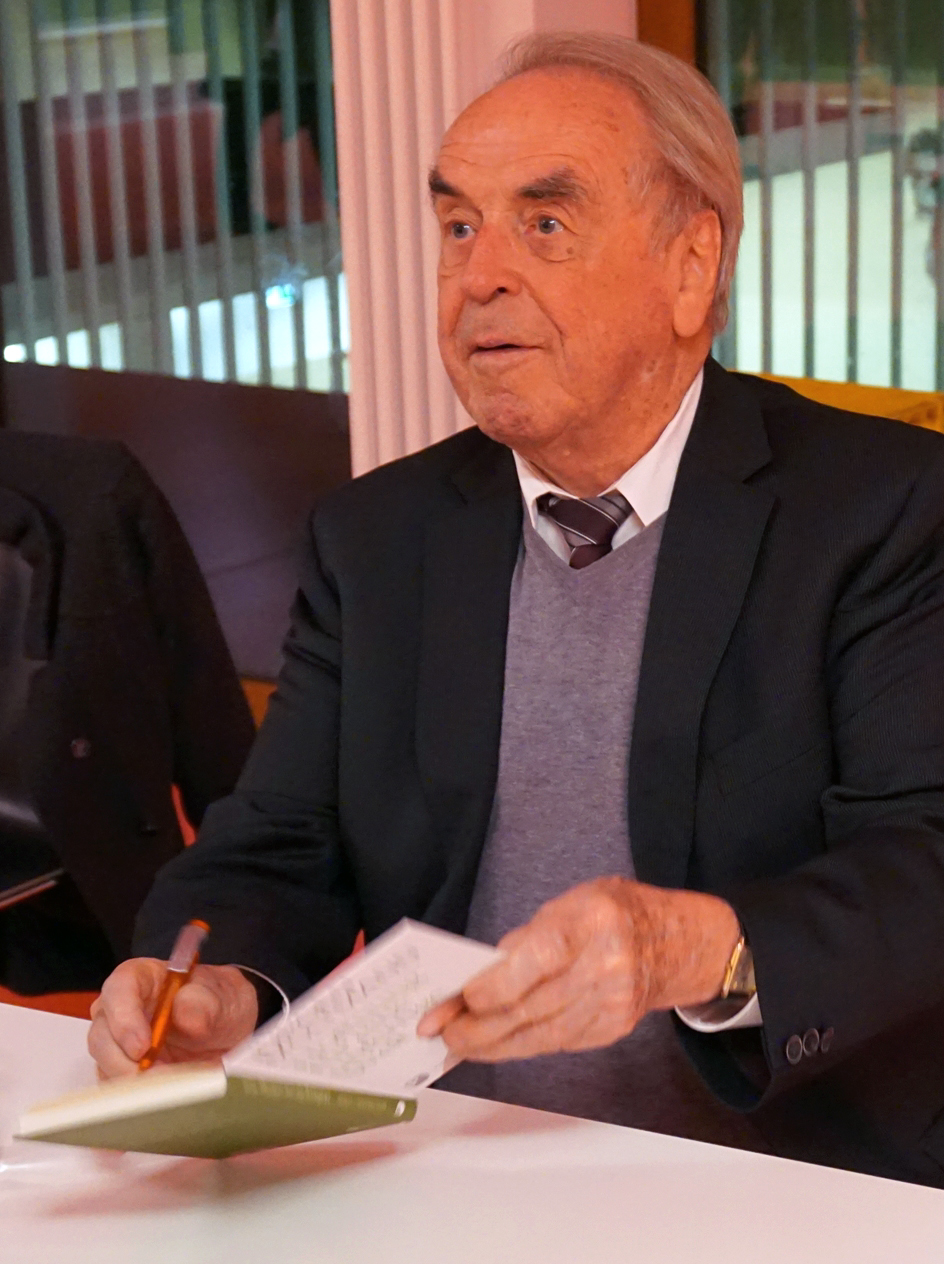God's Creatures, Our Responsibility: Jürgen Moltmann on Animal Rights
Thursday, 29 August 2024
| Daniela Rizzo

Human concerns usually dominate Christian theology; however, the late Jürgen Moltmann leaves behind a legacy that transcends anthropocentric boundaries. With his passing in June 2024, we are reminded of Moltmann's transformative perspective: that God’s love encompasses the entire cosmos, including all living creatures. This viewpoint brings animals to the forefront of theological reflection.
Moltmann’s theology is anchored in the belief that the value of all creatures is deeply rooted in God's love, Christ's sacrifice and the indwelling presence of the Holy Spirit. As a result, he posits that the intrinsic worth of animals demands legal acknowledgment and protection against human aggression. This perspective is not merely sentimental but is founded on a robust theological framework that recognises animals as beings with inherent rights. Extending the concept of reconciliation with Christ to the entire cosmos, Moltmann envisions a legal community that includes both humans and animals, through a legal framework that parallels the Universal Declaration of Human Rights of 1948. Moltmann contends that animals are not mere objects or commodities but living beings with intrinsic value, necessitating a fundamental shift away from exploitative practices toward those that respect the nature and dignity of animals.
Historically, animals have often been at a disadvantage, punished when they harmed humans and without reciprocal legal protections. In advocating for contemporary legal safeguards for animals, Moltmann draws on Leviticus 20:15 and medieval legal codes to illustrate how past societies, albeit imperfectly, recognised the need to balance human and animal rights. Within Moltmann’s theological framework, creation is viewed as God’s property, to be respected and cared for. This implies that both humans and animals have rights to use creation for sustenance but not to exploit it destructively. An obvious outcome of this perspective is a shift from mass animal production for food to more humane practices that honour the intrinsic worth of animals.
The ethical treatment of animals thus aligns with Moltmann’s broader theological mandate of reconciliation that transcends human relationships, extending to all of creation. Moltmann asserts that God’s justice is restored and made manifest through the reconciliation of the cosmos (Colossians 1:20), which includes establishing legal protections for animals and the natural world. This comprehensive reconciliation aims to create a legal community capable of sustaining life and peace for all creation. Moltmann’s understanding of the Trinity is expansive, viewing it as an inclusive community where the whole of creation finds space, time and freedom. The Father, Son and Holy Spirit form a relationship that is open and welcoming, challenging traditional notions of divine impassibility – the idea that God by nature cannot experience emotional change or suffering. This trinitarian love seeks union with all of creation, embracing every living creature.
Moltmann emphasises God’s active involvement in the created order, sustaining life in all beings. This interconnectedness affirms the intrinsic value of nonhuman creation. Each creature, from the smallest insect to the largest mammal, holds infinite value in God’s sight for its own sake and has a right to live, grounding a universal reverence for all life. This cosmic community challenges modern anthropocentrism, inviting humans to recognise their participation alongside all creatures. In Moltmann’s theology, Christ’s death and resurrection are not solely human-centric events, but encompass all creatures, revealing the current state of creation and its eschatological hope.
Moltmann’s eschatology, characterised by a form of panentheism (as opposed to pantheism, whereby God and creation are not separate), envisions a consummation where all things exist ‘in God’. This theological vision includes every individual nonhuman animal, emphasising their participation in the cosmic community. The future of peace that Moltmann envisions involves all creatures sharing in God and each other, challenging dualistic separations. The Spirit’s presence in all living creatures is central to Moltmann’s pneumatology. The breath (ruach) of Elohim sustains all life, manifesting in the cosmos' groans (Rom 8:18-30) and preserving it as creatio continua. This interconnectedness validates animals as creatures of worth before God, allowing them to partake in the cosmic community’s rights and share in its eschatological future.
Jürgen Moltmann offers a compelling theological vision that disrupts anthropocentrism by including the entire created order. Every creature, integral to the cosmic community, is valued by God for its own sake. The Trinity's perichoretic union and Christ's death extend to all creatures, drawing them into God’s communion. The Spirit sustains life now and eternally, heralding a future of peace where all creatures participate in God and one another. As proleptic witnesses, we are called to practice peace within history and the eschatological future, embodying Moltmann's grand vision of cosmic reconciliation. In this ‘green’ theological outlook, we are invited to recognise the sacredness of all life and to advocate for the legal and moral rights of all creatures.
Daniela Rizzo is a PhD candidate at Alphacrucis University College. She lives in a picturesque, environmentally focused coastal city on the Great Ocean Road. With ample bushland, beaches and wallabies to inspire her research, Daniela’s dissertation focuses on how the Spirit draws all creatures into renewed life in Christ, the eschaton and beyond.
Suggested readings
Jürgen Moltmann, Creating a Just Future, trans John Bowden (London, UK: SCM Press, 1989).
Jürgen Moltmann, The Source of Life: The Holy Spirit and the Theology of Life, trans Margaret Kohl (London: Fortress Press, 1997).
Jürgen Moltmann, The Spirit of Life: A Universal Affirmation (London: SCM Press, 1999).
Jürgen Moltmann, The Way of Jesus Christ: Christology in Messianic Dimensions, trans Margaret Kohl (Minneapolis: Fortress Press, 1993).
Image credits:
Jürgen Moltmann im Hospitalhof Stuttgart. März 2016. By Maeterlinck - Own work, CC BY-SA 4.0. Source: Wikimedia.
Koala by xiSerge on Pixabay.